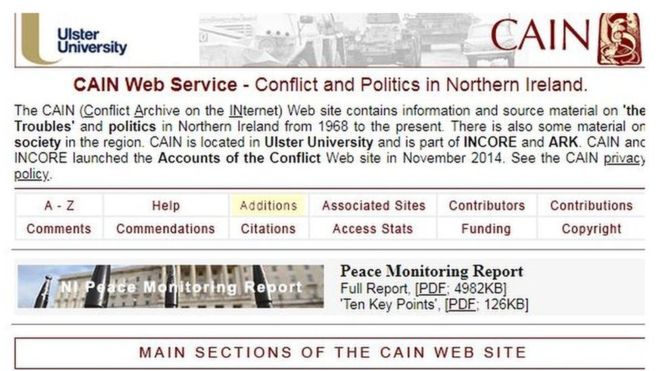 AN archive of the Troubles in the North of Ireland run by Ulster University in Derry is set to close.
AN archive of the Troubles in the North of Ireland run by Ulster University in Derry is set to close.
Cain – Conflict Archive on the Internet – charts the history, key events and political issues on the Troubles going back to 1968.
It is a “go-to” website for academics from across the world as well as an important resource for researchers and journalists.
It is run from the university’s Magee campus.
The university said it was consulting with trade unions and staff on the archive’s future, and was exploring a range of options.
The university said it was committed to ensuring ongoing access to the archive.
“A two-year period was agreed in 2016 to enable the Cain archive to improve its financial viability and become self-funding,” said a spokesperson.
“Despite some successful funding applications, regrettably these have not been enough and the project remains unsustainable in its current form.”
Goretti Horgan, a social policy lecturer at Ulster University, and a University and College Union representative (UCU), told BBC Radio Ulster she was concerned at the development.
She said UCU was concerned that some jobs were “at stake”, and “whether some of the core missions of the university, particularly in relation to being a civic university and a global one, are going to be very badly impacted if Cain is essentially mothballed”.
“I use Cain on a regular basis to find information about speeches that politicians make, or particular incidents that happened,” Ms Horgan added.
“One of the things you can say about Cain is that it has a global reach.”
Cain is part of Ark – Access Research Knowledge – and is based within Incore – the International Conflict Research Institute.
The university said it was consulting on a way forward and that the work of Ark and Incore would not be affected.
It added that the Cain resource would “remain available online in its current state”.
UU said a range of options are being explored and the university “remains committed to ensuring ongoing access to the important material in CAIN, fully accessible to the public through the university’s library”.
Tags:




